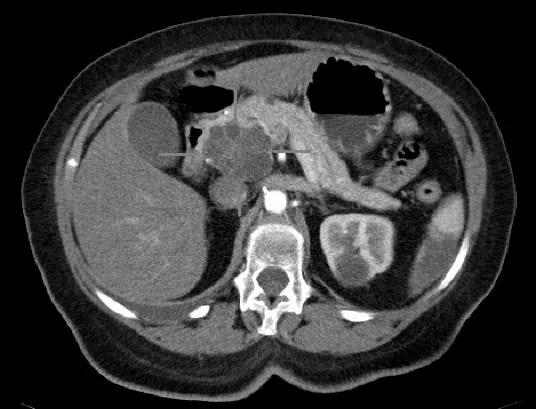
Unlocking the Secrets of Alcohol-Linked Pancreatic Cancer: New Study Reveals a Key Player!
2025-08-12
Author: Nur
The Alarming Link Between Alcohol and Cancer
As the world becomes more aware of the hazards of alcohol consumption, mounting evidence suggests that drinking may have a direct connection to cancer development. However, the biological mechanisms behind this alarming link have remained largely unexplored.
A Breakthrough in Understanding Pancreatic Cancer
A groundbreaking study published in *Cellular and Molecular Gastroenterology and Hepatology* uncovers crucial insights that could change how we approach pancreatic cancer—one of the most lethal forms of the disease. Researchers have highlighted the pivotal role of a molecular player called CREB in the processes tied to alcohol-related pancreatic cancer.
Dr. Siddharth Mehra, a key scientist from Sylvester Comprehensive Cancer Center, expressed the significance of their findings: "Our model serves as an important platform for understanding how chronic inflammation related to alcohol consumption accelerates the development of pancreatic cancer."
How Alcohol Triggers Cancer Risk
Chronic heavy drinking inflicts damage on acinar cells in the pancreas, which are responsible for producing crucial digestive enzymes. This damage escalates inflammation throughout the tissue, laying the groundwork for precancerous lesions that may morph into full-blown pancreatic cancer over time.
Previous research has implicated CREB—a DNA-binding protein that controls gene activity—in mediating these detrimental effects. When accompanied by mutations in the pro-cancer gene Ras, the risk of developing pancreatic tumors skyrockets.
The Experimental Model: Unveiling the Mechanism
In their innovative study, researchers created a model mimicking alcohol-induced inflammation, which led to precancerous lesions and subsequent cancer progression. This model featured Ras mutations in acinar cells, and researchers could also manipulate the CREB gene.
The findings revealed that exposure to alcohol and certain inflammatory compounds triggered symptoms akin to alcohol-induced pancreatitis. This inflammation not only fostered the emergence of precancerous lesions but also accelerated cancer development—an alarming trend corroborated by enhanced CREB activation.
Turning Off CREB: A Potential Cancer Breakthrough
In a pivotal turn, researchers deactivated CREB and observed a significant decline in the formation of precancerous and cancerous lesions, even while alcohol remained present. This intervention also mitigated damage to acinar cells.
The implications are staggering: inhibitors of CREB could represent a novel therapeutic avenue for individuals with high alcohol intake. Such treatments might help protect the pancreas and prevent tumor progression.
The Bigger Picture: Future Research Directions
Dr. Nagaraj Nagathihalli, the study’s senior author, stated, "CREB is not merely a mediator of inflammation; it acts as a molecular orchestrator, turning acinar cells into precursors of cancer that evolve into high-grade tumors." Future research aims to deepen understanding of how alcohol accelerates pancreatic cancer and whether similar biochemical events transpire in human cells.
With ongoing investigations into CREB inhibitors as potential cancer treatments, this study lays vital groundwork for targeting inflammation-associated pancreatic cancer with innovative therapies.
A Call to Action: Protect Your Health!
As this research unfolds, it's crucial for individuals to stay informed about the risks associated with alcohol consumption, particularly regarding pancreatic health. The findings offer a glimmer of hope in the fight against one of cancer's most challenging adversaries.



 Brasil (PT)
Brasil (PT)
 Canada (EN)
Canada (EN)
 Chile (ES)
Chile (ES)
 Česko (CS)
Česko (CS)
 대한민국 (KO)
대한민국 (KO)
 España (ES)
España (ES)
 France (FR)
France (FR)
 Hong Kong (EN)
Hong Kong (EN)
 Italia (IT)
Italia (IT)
 日本 (JA)
日本 (JA)
 Magyarország (HU)
Magyarország (HU)
 Norge (NO)
Norge (NO)
 Polska (PL)
Polska (PL)
 Schweiz (DE)
Schweiz (DE)
 Singapore (EN)
Singapore (EN)
 Sverige (SV)
Sverige (SV)
 Suomi (FI)
Suomi (FI)
 Türkiye (TR)
Türkiye (TR)
 الإمارات العربية المتحدة (AR)
الإمارات العربية المتحدة (AR)